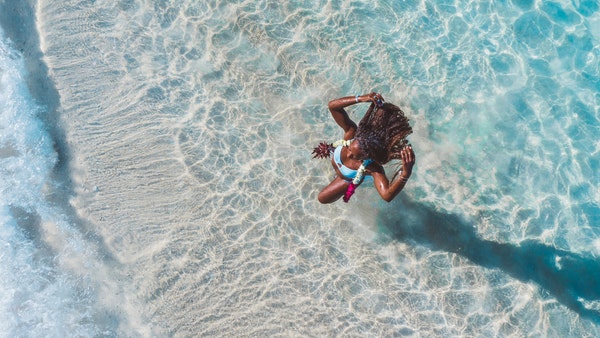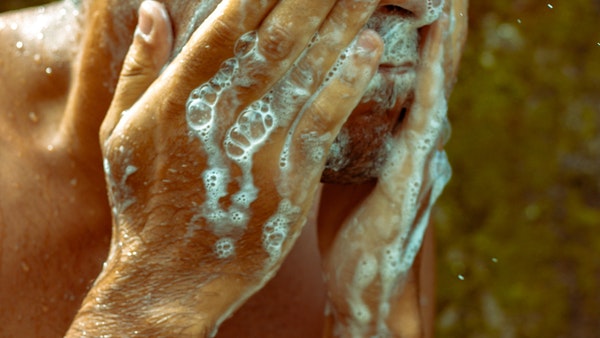Just In
- 2 hrs ago

- 5 hrs ago

- 5 hrs ago

- 7 hrs ago

Don't Miss
- Movies
 Manjummel Boys Telugu OTT Release Date: When & Where To Watch Soubin Shahir's Sensational Survival Drama
Manjummel Boys Telugu OTT Release Date: When & Where To Watch Soubin Shahir's Sensational Survival Drama - Education
 UP Board 12th Result Toppers List 2024; Check the Names, Ranks, Marks and Districts here
UP Board 12th Result Toppers List 2024; Check the Names, Ranks, Marks and Districts here - News
 Doordarshan's New Orange Logo Draws Criticism, Ex-Boss Takes A Dig
Doordarshan's New Orange Logo Draws Criticism, Ex-Boss Takes A Dig - Sports
 IPL 2024: CSK coach Stephen Fleming talks about space 'owned' by MS Dhoni, calls 42-year-old heartbeat of team
IPL 2024: CSK coach Stephen Fleming talks about space 'owned' by MS Dhoni, calls 42-year-old heartbeat of team - Finance
 Elon Musk Postpones India Trip, Tesla's Indian Market Entry Delayed
Elon Musk Postpones India Trip, Tesla's Indian Market Entry Delayed - Technology
 Best Noise-Cancelling Earbuds Under Rs 5,000: CMF Buds Pro, Redmi Buds 5, Realme Buds Air 5, and More
Best Noise-Cancelling Earbuds Under Rs 5,000: CMF Buds Pro, Redmi Buds 5, Realme Buds Air 5, and More - Automobiles
 Tesla CEO Elon Musk's Much-Awaited Visit to India Deferred, Leaving Questions Unanswered
Tesla CEO Elon Musk's Much-Awaited Visit to India Deferred, Leaving Questions Unanswered - Travel
 Journey From Delhi To Ooty: Top Transport Options And Attractions
Journey From Delhi To Ooty: Top Transport Options And Attractions
Reasons Why You Should Shower Soon After A Dip In The Ocean
People often forget to bath after a dip in the salt water as they consider it an activity that helps clean their bodies. Though sea swimming has health benefits like reduction in stress, muscle relaxation and promotion of deep sleep, it may, in some ways, have side effects, especially related to the skin.

According to a study published in the journal ScienceDirect, there's an increased risk of skin infection after swimming in the ocean and cleaning the skin immediately after engaging in recreational ocean activities can help reduce the infection risk. [1]
Here's why it's important to clean the body after a dip in the ocean:
1. Resistance against antibiotics
The skin is the largest organ in the human body that helps protect against various foreign materials like pathogens, radiation and xenobiotics. Swimming in the ocean may help remove normal bacteria from the skin, but simultaneously deposit diverse ocean bacteria on the skin, leading to antibiotic resistance genes, in which the bacteria gain more resistance to antibiotics and make them harder to treat. This leads to an increased risk of skin infection due to a decrease in the effectiveness of antibiotics.

2. Faecal matter deposition
Along with harmful bacteria in the ocean, there are also lots of faecal matter in the ocean caused due to sewage discharge and aquatic beings' excretion. These faecal matters get deposited in the skin after an ocean dip and may spread and cause infection if left there for longer. This makes showering important after sea swimming. [2]
3. Risk of severe diseases
There have been reports in many parts of the world in which people who have gone for a swim in the ocean have been hospitalised a few days later. This was mainly due to a rare bacterial infection necrotising fasciitis, also known as flesh-eating disease. The bacteria enter the body through a cut or open wounds in the skin and affects the bloodstream, leading to severe tissue damage and conditions like organ failure. [3]
How To Bathe In Sea Water?
- Check the water quality and pollution reports of the beach and only if it's below level, consider swimming in the area.
- Always wear an SPF while going to the beach. Though it may not protect completely against the ocean bacteria, it may protect your skin up to certain levels.
- Avoid swimming if you have a cut or wound on the skin.

How To Bathe After A Dip In The Ocean?
The most important thing after an ocean dip is to rinse off the skin. Bathing with normal tap water is usually recommended, however, using soap can add to the benefits.
Also, there's no need to scrub the skin or use antibacterial soap as they may irritate the skin and cause the skin to become more permeable for infections.
To Conclude
Ocean dip can be more harmful than bathing in chlorinated water. This is because in the prior, a person is exposed to a range of diverse bacteria that resides in the ocean, while in the latter, there are only homogenous bacteria and the effect on the skin is only from the chlorinated water.
-
 pregnancy parentingBaby's First Bath: How To Give Your Newborn A Bath
pregnancy parentingBaby's First Bath: How To Give Your Newborn A Bath -
 healthHeat Wave In India: How Often Should You Shower? How Many Showers A Day Is Safe?
healthHeat Wave In India: How Often Should You Shower? How Many Showers A Day Is Safe? -
 skin careIs Taking A Hot Water Shower Daily Good For Your Skin? 7 Reasons It May Not Be A Good Idea
skin careIs Taking A Hot Water Shower Daily Good For Your Skin? 7 Reasons It May Not Be A Good Idea -
 recipesTomato Rice Recipe: How To Make South Indian Tomato Bhath
recipesTomato Rice Recipe: How To Make South Indian Tomato Bhath -
 body careMake Your Everyday Bath Become A Spa With These Simple Ideas
body careMake Your Everyday Bath Become A Spa With These Simple Ideas -
 skin carePamper Your Skin From The Wedding Stress With These Home Methods
skin carePamper Your Skin From The Wedding Stress With These Home Methods -
 body careMasks To Include Before Taking Bath
body careMasks To Include Before Taking Bath -
 recipesVegetable Bhath Recipe: How To Make Karnataka-style Vegetable Bhath
recipesVegetable Bhath Recipe: How To Make Karnataka-style Vegetable Bhath -
 skin careMilk Bath: Health Benefits And How To Include It
skin careMilk Bath: Health Benefits And How To Include It -
 disorders cureHealth Benefits Of Bath Salt
disorders cureHealth Benefits Of Bath Salt -
 body careLuxurious Bath Salt Recipes To Pamper Your Skin
body careLuxurious Bath Salt Recipes To Pamper Your Skin -
 wellnessWhy Indians Take A Dip In Holy Rivers? Here Are The Health Benefits!
wellnessWhy Indians Take A Dip In Holy Rivers? Here Are The Health Benefits!


 Click it and Unblock the Notifications
Click it and Unblock the Notifications



